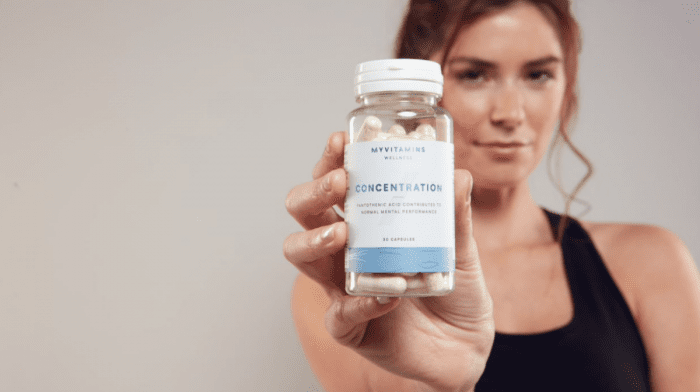Benefits Of Inulin
This soluble fibre has various health benefits including alleviating constipation, supporting immune function and aiding weight loss.
It Can Support Gut Health
Without enough good bacteria in the gut, we can’t digest food properly, especially fibre. If ‘bad’ bacteria thrives and the microbiome is unbalanced, we can experience an upset stomach, bloating and more.
Inulin helps to increase the volume of good bacteria in the gut, which in turn promotes healthy digestion, blood sugar control and pathogen protection.
It May Relieve Constipation
Studies show that inulin helps to increase the frequency of bowel movements, whilst slowing overall digestion. This allows the body to absorb nutrients from food better. 1
It May Be Helpful For Managing Blood Pressure
Whilst more research is needed on inulin and heart health, it’s thought that this fibre can help to lower both systolic and diastolic blood pressure. 2
It Can Help To Improve Sleep Quality
In a recent BBC documentary, Dr Michael Mosley took prebiotics including inulin for five days, and saw significant improvement in sleep duration and sleep quality. (3) This is because good bacteria in the microbiome aids stress resilience and allows more time in REM sleep. 4
Data also indicates that poor sleep, mood disorders and immune function issues are linked to poor microbiome diversity. In fact, 60 minutes of waking during the night has been linked to a 26% reduction in gut microbe diversity. 5
Inulin Dosage
As well as supplementing inulin into your diet, it’s important to source fibre from foods including fruits, vegetables and whole grains.
When using Myvitamins Inulin Powder, we suggest adding just 5g to your drinks, shakes or meals. It’s tasteless and light, meaning it’s easily incorporated into your daily routine.
If you’re unsure on how much inulin you should be taking, please seek advice from a medical professional.
Side Effects Of Inulin
Whilst inulin has lots of benefits for the body, this fibre can have side effects for some, especially those following a low FODMAP diet.
Bloating
When inulin ferments in the gut, it produces gas and this can cause bloating. This is why it’s recommended to slowly introduce inulin into your diet over days/weeks.
Diarrhoea
Inulin improves bowel health through increasing bowel movements and softening stool. (6) However, like any fibre, inulin can cause diarrhoea and abdominal pain if taken too quickly or in large quantities.
Take Home Message
As a natural prebiotic, inulin helps good bacteria to grow in the digestive system. It’s benefits range from bowel health improvements to sleep support, but it’s important to add it into your diet gradually.
FAQs
What Is Inulin?
Inulin is a soluble fibre that feeds good bacteria in the gut, helping it to grow.
Is Inulin A Prebiotic?
Yes, inulin is a prebiotic. It can be found naturally in foods including garlic, leeks and oats.
What Are The Benefits Of Inulin?
Inulin has been shown to benefit your sleep, gut health, blood pressure and more.
Who Should Take Inulin Supplements?
Anyone can take inulin, especially those looking to improve their everyday digestion. If you’re following a FODMAP diet or suffer from IBS (Irritable Bowel Syndrome) or SIBO (Small Intestinal Bacterial Overgrowth,) we’d recommend that you’re extra careful with inulin. Consult your doctor if you’re unsure.
How Much Inulin Can I Consume?
It’s completely safe to take inulin every day, but you might want to slowly introduce it in your diet in 2 or 3g doses. You can then increase this to 5-10g when you’re ready.
When Should I Take Inulin?
There’s no specific time that you need to take Inulin Powder. Simply add it into your daily routine whenever it best suits.
How Should I Take Inulin?
Myvitamins Inulin is a fine powder that can be added to your daily shakes, bakes and smoothies.
What Are The Side Effects Of Inulin Powder?
For those with pre-existing digestive conditions, inulin can cause side effects including bloating or diarrhoea. These are usually short term but it’s best to speak to a medical professional if you’re concerned.









